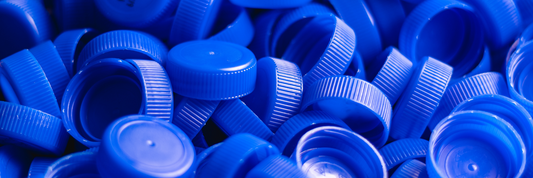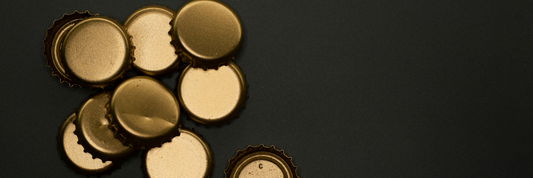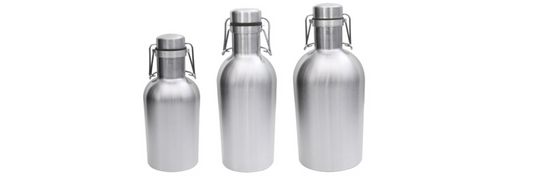When it comes to preserving food, glass jars are a versatile and eco-friendly option. But can you freeze food in glass jars? What makes glass jars break in the freezer? What kind of foods do you freeze in glass jars? Let's explore the ins and outs of this preservation method.
- Keeping Strawberries In a Glass Jar: Step By Step to Store Strawberries Last Longer
- Will A Glass Jar Break in Boiling Water?
- How to Open a Stuck Jar? 5 Simple Ways to Practice
Is It Safe to Freeze Food in Glass Jars?
While the convenience of glass jars for freezing is undeniable, not all types are created equal. Glass jars specifically designed for freezing, such as those made from borosilicate or tempered glass, are the safest option. These types are engineered to withstand the thermal shock associated with freezing and thawing cycles, minimizing the risk of breakage. While regular glass jars may work in some instances, they carry a higher risk of cracking due to the rapid temperature change.
What Type of Glass Jars Can Be Freeze?
Not all glass jars are created equal, and understanding the specific properties that make certain types suitable for freezing is crucial.
Here's are the ideal glass types for freezing food:
- Borosilicate Glass: This exceptional type of glass stands out for its remarkable heat resistance. Its composition allows it to withstand the significant temperature fluctuations involved in freezing and thawing cycles without compromising its structural integrity. This makes borosilicate glass jars the safest and most reliable option for freezing food, minimizing the risk of cracking or shattering due to thermal shock.
- Tempered Glass: Similar to borosilicate glass, tempered glass undergoes a specific treatment process that enhances its durability and resistance to thermal shock. This treatment strengthens the glass, making it less susceptible to breakage when exposed to extreme temperature changes. While not quite as resilient as borosilicate glass, tempered glass jars still offer a significant degree of safety for freezing purposes.
While regular glass jars may seem like a readily available option, their use for freezing food comes with inherent risks. Unlike borosilicate or tempered glass, regular glass is more prone to cracking under the stress of rapid temperature changes. This increased risk of breakage can lead to food spoilage and potential safety hazards.

What Kind of Foods Do You Freeze in Glass Jars?
Glass jars offer a versatile platform for freezing a diverse range of food items.
- Fruits and vegetables: Whether whole or chopped, their freshness and texture are well-preserved during freezing in glass jars.
- Soups and sauces: These liquids freeze beautifully in jars, allowing for convenient storage and reheating without compromising their delicious flavors.
- Baby food: Glass jars are ideal for freezing baby food, promoting portion control and convenience for busy parents.
- Leftovers: Leftovers of cooked meals can be extended in their lifespan through freezing in glass jars, minimizing food waste and maximizing enjoyment.
- Cooked grains: Freezing cooked grains in glass jars provides an easy and efficient way to store and portion them for future meals.
- Smoothies and purees: These healthy breakfast or snack options freeze well in glass jars, offering a quick and nutritious solution.
However, it's crucial to avoid freezing carbonated beverages or anything that undergoes significant volume expansion during freezing, as this can lead to jar breakage and potential safety hazards.

What Makes Glass Jars Break in the Freezer?
This phenomenon occurs due to the inherent properties of both the jar and its contents. As liquids and certain solids freeze, they expand in volume. If insufficient "headspace" (empty space at the top) is left within the jar, this expansion creates significant internal pressure. This pressure, exceeding the glass's structural integrity, exerts stress on the walls, ultimately causing cracks or complete breakage.
The risk of breakage is further amplified by the presence of liquids (particularly water-based solutions) and rapid freezing, as these factors exacerbate the volume change and pressure buildup.
Do You Need Specific Lids for Freeze Food in Glass Jars?
While specific lids aren't strictly necessary for freezing in glass jars, a strategic approach to lid application is crucial. Initially, it's recommended to leave the lid slightly loose or even off. This allows for headspace and pressure release during freezing, preventing the jar from cracking due to expansion. Once the food is fully frozen, the lid can be securely tightened for long-term storage. This two-step process ensures both safety and optimal preservation of your frozen food.
How do You Thaw Food in Glass Jars?
Thawing food in glass jars requires a gentle approach to prevent breakage:
- Refrigerator Thawing: The safest and most recommended method is to transfer the frozen jar to the refrigerator and let it thaw slowly overnight. This gradual temperature change minimizes stress on the glass, ensuring safe and even thawing.
- Cold Water Bath: For slightly faster thawing, place the sealed jar in a bowl of cold water. Change the water periodically to maintain a consistent temperature and avoid thermal shock. Remember, never use hot water, as the rapid temperature change can cause the glass to crack.
- Microwave Thawing (Caution): While technically possible, thawing frozen food in a glass jar directly in the microwave is highly discouraged. The rapid and uneven heating can cause the glass to shatter, potentially leading to injury and food spoilage. If using a microwave for thawing, transfer the food to a microwave-safe container first.
Conclusion
Glass jars offer a convenient and eco-friendly solution for freezing a wide variety of food items. By choosing the right type of glass, ensuring adequate headspace, selecting suitable food items, and employing appropriate thawing techniques, you can leverage the benefits of glass jars for safe and efficient food storage.









